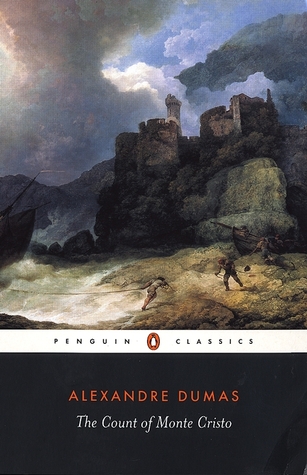
Through his actions, Edmund is certain beyond any doubt that his revenge is right and just, that not even God would deny him (and certainly the reader can't fault him either). Only when an innocent is harmed does his confidence shatter and he realizes he had no more right to meddle in the lives of those who wronged him than they had to meddle in his. He sets out to make right what he can. And then he tries to move forward. He can't go back to man he used to be - the Edmund Dantes from the beginning of the novel is dead. Nor can he any longer be the Count - that vestige of destruction is behind him. But with hope, time, and a little love, he might find joy and happiness again.
Through Edmund's journey the novel covers the full spectrum of human emotion and countenance: joy and innocence, despair and distrust, anger and cool calculated vengeance, doubt and uncertainty, and at last hope and trust in time. If ever a novel can be said to embody the whole of human nature, it is this one. Every fault and virtue of humanity is covered in the spectrum of characters and every emotion is felt as we follow them.
We despair as Edmund's life is taken from him, we relish the results as he carries out his vengeance, and as the novel closes with "All human wisdom is contained in these two words - Wait and Hope" we find ourselves strangely reminded of our own lives - our dreams and triumphs, our failures and betrayals, our choices of action or feelings of helplessness - and we realize the final line of the book couldn't ring more true. There's something satisfying in following the journey of Edmund Dantes and finding it isn't all that different from our own - despite his having a certain flourish.
A more perfect novel, I don't believe can ever be found. But, being my all time favorite, I'm extremely biased.

No comments:
Post a Comment